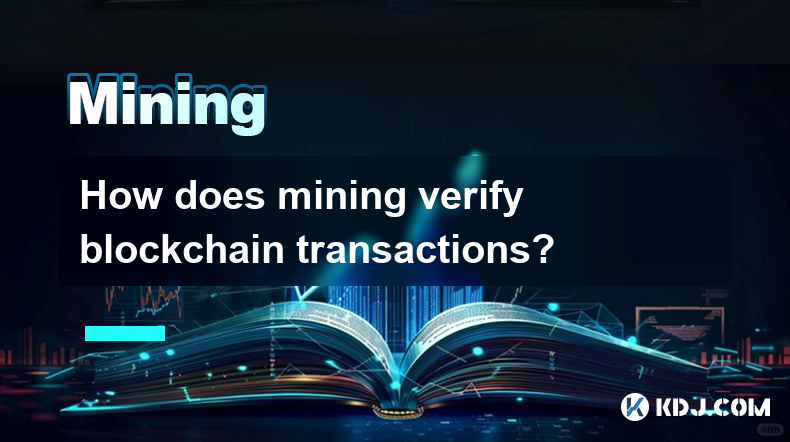-
 Bitcoin
Bitcoin $92,791.8043
-1.35% -
 Ethereum
Ethereum $1,755.1542
-3.41% -
 Tether USDt
Tether USDt $1.0002
-0.01% -
 XRP
XRP $2.1670
-5.40% -
 BNB
BNB $597.8018
-2.59% -
 Solana
Solana $148.6654
-3.10% -
 USDC
USDC $1.0000
0.00% -
 Dogecoin
Dogecoin $0.1741
-5.86% -
 Cardano
Cardano $0.6943
-2.44% -
 TRON
TRON $0.2457
-0.42% -
 Sui
Sui $3.0286
2.61% -
 Chainlink
Chainlink $14.4764
-4.73% -
 Avalanche
Avalanche $22.0152
-4.12% -
 UNUS SED LEO
UNUS SED LEO $9.2234
2.05% -
 Stellar
Stellar $0.2687
-2.01% -
 Toncoin
Toncoin $3.1166
-0.77% -
 Shiba Inu
Shiba Inu $0.0...01320
-3.99% -
 Hedera
Hedera $0.1818
-3.34% -
 Bitcoin Cash
Bitcoin Cash $347.4785
-3.75% -
 Polkadot
Polkadot $4.0211
-3.26% -
 Litecoin
Litecoin $81.4299
-4.20% -
 Hyperliquid
Hyperliquid $17.9559
-5.59% -
 Dai
Dai $1.0000
-0.01% -
 Bitget Token
Bitget Token $4.3936
-4.77% -
 Ethena USDe
Ethena USDe $0.9992
-0.02% -
 Pi
Pi $0.6496
-3.57% -
 Monero
Monero $224.5697
-2.17% -
 Uniswap
Uniswap $5.7648
-4.97% -
 Pepe
Pepe $0.0...08565
-7.33% -
 Aptos
Aptos $5.3125
-1.27%
How does mining verify blockchain transactions?
Miners solve complex cryptographic puzzles to verify and add transaction blocks to the blockchain, securing the network and preventing double-spending; rewards incentivize participation, varying by consensus mechanism (PoW vs. PoS).
Mar 01, 2025 at 04:54 am

Key Points:
- Mining involves solving complex cryptographic puzzles to validate and add new blocks of transactions to the blockchain.
- This process secures the network, prevents double-spending, and maintains the integrity of the blockchain's record.
- Different consensus mechanisms, like Proof-of-Work (PoW) and Proof-of-Stake (PoS), employ varying approaches to mining and transaction verification.
- The complexity of the puzzles ensures that the process is computationally expensive, discouraging malicious actors from altering the blockchain.
- Successful miners are rewarded with newly minted cryptocurrency, incentivizing participation in the network's security.
How Does Mining Verify Blockchain Transactions?
Blockchain technology relies on a distributed ledger system, meaning transaction records are replicated across numerous computers (nodes) within the network. To ensure the integrity and immutability of this ledger, a process called mining is employed. Mining, at its core, is the process of verifying and adding new transactions to the blockchain. This isn't done by a central authority; instead, it's a decentralized, competitive process.
The process begins with a collection of pending transactions. These transactions, once broadcast to the network, are gathered into a block. This block contains a cryptographic hash of the previous block, creating a chain. This linkage is what gives the blockchain its name and its security. Miners then compete to solve a complex computational puzzle associated with this block.
This puzzle typically involves finding a specific number (nonce) that, when combined with the block's data and hashed, results in a hash that meets certain criteria. The criteria usually involve the hash starting with a specific number of zeros, making it incredibly difficult to find the correct nonce. The difficulty of the puzzle is dynamically adjusted by the network to maintain a consistent block creation rate.
The first miner to solve the puzzle and produce a valid hash “wins” and adds their solved block to the blockchain. This solved block, containing the verified transactions, is then broadcast to the network, where other nodes verify its validity. Once verified by a majority of nodes, the block is permanently added to the blockchain, confirming the transactions within it.
This process, particularly in Proof-of-Work (PoW) systems like Bitcoin, consumes significant computational resources. The energy expenditure is a controversial aspect of PoW, but it's a critical part of the system's security. The computational cost acts as a deterrent against malicious actors attempting to manipulate the blockchain by creating fraudulent blocks.
Proof-of-Stake (PoS) systems offer a more energy-efficient alternative. In PoS, miners (often called validators) are selected to create new blocks based on the amount of cryptocurrency they "stake" (lock up) in the network. The selection process is probabilistic, rewarding those who have staked more cryptocurrency with a higher chance of being selected. Transaction verification in PoS still relies on consensus among validators, but it avoids the computationally intensive puzzle-solving of PoW.
Regardless of the specific consensus mechanism, the core principle remains the same: mining ensures the verification and secure addition of transactions to the blockchain. The process inherently combats double-spending – the attempt to spend the same cryptocurrency twice – because once a transaction is included in a validated block, it cannot be reversed or altered.
Different Consensus Mechanisms and Their Impact on Mining and Verification:
The method of mining and verification varies depending on the blockchain's consensus mechanism. We've discussed PoW and PoS, but other mechanisms exist, each with its unique approach to transaction validation. The choice of consensus mechanism profoundly impacts the network's security, scalability, and energy consumption.
- Proof-of-Work (PoW): This mechanism, used by Bitcoin and many other cryptocurrencies, relies on miners competing to solve computationally intensive cryptographic puzzles. The winner adds the block to the chain and receives a reward. This ensures security through the energy expenditure required for mining.
- Proof-of-Stake (PoS): This mechanism, employed by Ethereum (post-Merge) and other blockchains, selects validators based on the amount of cryptocurrency they stake. It’s generally considered more energy-efficient than PoW. Validators are rewarded for correctly validating transactions and penalized for malicious behavior.
- Delegated Proof-of-Stake (DPoS): This mechanism allows token holders to vote for delegates who will validate transactions. It aims to improve efficiency and scalability by reducing the number of validators needed.
The Role of Hashing in Transaction Verification:
Hashing is a fundamental aspect of blockchain technology and plays a crucial role in transaction verification. A cryptographic hash function takes an input (in this case, the block's data) and produces a unique, fixed-size output (the hash). Even a tiny change in the input will drastically alter the output hash.
This property makes hashing ideal for ensuring data integrity. If a malicious actor tries to alter a transaction in a block, the resulting hash will be completely different, instantly revealing the tampering. The hash of the previous block is also included in each new block, forming the chain and making it incredibly difficult to alter past transactions without affecting subsequent blocks.
This intricate process ensures that the blockchain maintains its immutability, a cornerstone of its security and reliability.
Frequently Asked Questions:
Q: What is the reward for successful mining?
A: The reward for successful mining varies depending on the cryptocurrency. It usually involves newly minted coins and transaction fees included in the block. The reward gradually decreases over time, often according to a pre-defined schedule.
Q: How much energy does mining consume?
A: The energy consumption of mining depends heavily on the consensus mechanism (PoW consumes significantly more energy than PoS). The specific hardware used, network difficulty, and cryptocurrency's algorithm also contribute to the overall energy usage.
Q: Can anyone mine cryptocurrency?
A: Technically, yes, anyone can mine cryptocurrency. However, the profitability of mining depends on various factors, including the cost of hardware, electricity, and the cryptocurrency's price. For many cryptocurrencies, specialized mining hardware is required, making it a substantial investment.
Q: Is mining profitable?
A: The profitability of mining is highly variable and depends on several factors. These include the cryptocurrency's price, mining difficulty, electricity costs, and the cost of mining hardware. What may be profitable in one circumstance may not be in another.
Q: What are the risks associated with mining?
A: Risks associated with mining include the high initial investment in hardware, fluctuating cryptocurrency prices, potential hardware failures, and the possibility of becoming unprofitable due to increased network difficulty or decreased cryptocurrency value. Also, the environmental impact of energy consumption, especially with PoW, is a growing concern.
Disclaimer:info@kdj.com
The information provided is not trading advice. kdj.com does not assume any responsibility for any investments made based on the information provided in this article. Cryptocurrencies are highly volatile and it is highly recommended that you invest with caution after thorough research!
If you believe that the content used on this website infringes your copyright, please contact us immediately (info@kdj.com) and we will delete it promptly.
- After Years of "PUA", Zora Finally Issued a Coin, but the Community Users Did Not Get the "Big Result" They Wished For
- 2025-04-24 21:20:11
- Bitcoin (BTC) Has Exceeded the Realized Price of Short-term Holders, Exciting Analysts
- 2025-04-24 21:20:11
- PEPE Price Surge Re-enters the Crypto Spotlight with a 17% Breakout
- 2025-04-24 21:15:12
- US President Donald Trump Signed an AI Executive Order
- 2025-04-24 21:15:12
- Spot Bitcoin ETF inflows are at their highest since January 2025.
- 2025-04-24 21:10:12
- Mantle Network Launches MI4, a Institutional-Grade Digital Asset Index Fund Targeting $400M Market Gap
- 2025-04-24 21:10:12
Related knowledge

How to judge the stability and reliability of the mining pool?
Apr 19,2025 at 02:08pm
When engaging in cryptocurrency mining, choosing the right mining pool is crucial for maximizing your returns and ensuring a stable mining experience. The stability and reliability of a mining pool can significantly impact your overall success in mining. Here, we will explore the key factors to consider when evaluating the stability and reliability of a...

How to deal with abnormal noise during mining machine operation?
Apr 17,2025 at 01:35am
Mining machines are essential tools for cryptocurrency miners, but they can sometimes produce abnormal noises that may indicate underlying issues. Understanding how to identify and address these noises is crucial for maintaining the efficiency and longevity of your mining equipment. This article will guide you through the process of dealing with abnorma...

How to choose the right ASIC mining machine model?
Apr 21,2025 at 08:00am
Choosing the right ASIC mining machine model is crucial for maximizing your returns in cryptocurrency mining. The market offers a variety of ASIC miners, each with its own set of specifications and performance metrics. Understanding the key factors that influence your choice can help you make an informed decision that aligns with your mining goals and b...

How to maintain anonymity when mining?
Apr 17,2025 at 06:01pm
Maintaining anonymity when mining cryptocurrencies is crucial for many miners who wish to protect their privacy and security. This article will guide you through various strategies and tools that can help you achieve a high level of anonymity while engaging in mining activities. Understanding the Importance of Anonymity in MiningAnonymity in the context...

How to automate mining tasks through scripts?
Apr 18,2025 at 01:29pm
In the world of cryptocurrency, mining remains a crucial activity for generating new coins and securing blockchain networks. Automating mining tasks through scripts can significantly enhance efficiency and reduce manual labor. This article delves into the intricacies of automating mining tasks, providing a comprehensive guide on how to achieve this usin...

How to switch mining algorithms in the mining pool?
Apr 18,2025 at 12:00pm
Switching mining algorithms in a mining pool can be a strategic move for miners looking to optimize their mining operations. This process involves several steps and considerations, and understanding how to navigate it can significantly impact a miner's efficiency and profitability. In this article, we will explore the detailed steps required to switch m...

How to judge the stability and reliability of the mining pool?
Apr 19,2025 at 02:08pm
When engaging in cryptocurrency mining, choosing the right mining pool is crucial for maximizing your returns and ensuring a stable mining experience. The stability and reliability of a mining pool can significantly impact your overall success in mining. Here, we will explore the key factors to consider when evaluating the stability and reliability of a...

How to deal with abnormal noise during mining machine operation?
Apr 17,2025 at 01:35am
Mining machines are essential tools for cryptocurrency miners, but they can sometimes produce abnormal noises that may indicate underlying issues. Understanding how to identify and address these noises is crucial for maintaining the efficiency and longevity of your mining equipment. This article will guide you through the process of dealing with abnorma...

How to choose the right ASIC mining machine model?
Apr 21,2025 at 08:00am
Choosing the right ASIC mining machine model is crucial for maximizing your returns in cryptocurrency mining. The market offers a variety of ASIC miners, each with its own set of specifications and performance metrics. Understanding the key factors that influence your choice can help you make an informed decision that aligns with your mining goals and b...

How to maintain anonymity when mining?
Apr 17,2025 at 06:01pm
Maintaining anonymity when mining cryptocurrencies is crucial for many miners who wish to protect their privacy and security. This article will guide you through various strategies and tools that can help you achieve a high level of anonymity while engaging in mining activities. Understanding the Importance of Anonymity in MiningAnonymity in the context...

How to automate mining tasks through scripts?
Apr 18,2025 at 01:29pm
In the world of cryptocurrency, mining remains a crucial activity for generating new coins and securing blockchain networks. Automating mining tasks through scripts can significantly enhance efficiency and reduce manual labor. This article delves into the intricacies of automating mining tasks, providing a comprehensive guide on how to achieve this usin...

How to switch mining algorithms in the mining pool?
Apr 18,2025 at 12:00pm
Switching mining algorithms in a mining pool can be a strategic move for miners looking to optimize their mining operations. This process involves several steps and considerations, and understanding how to navigate it can significantly impact a miner's efficiency and profitability. In this article, we will explore the detailed steps required to switch m...
See all articles























































































